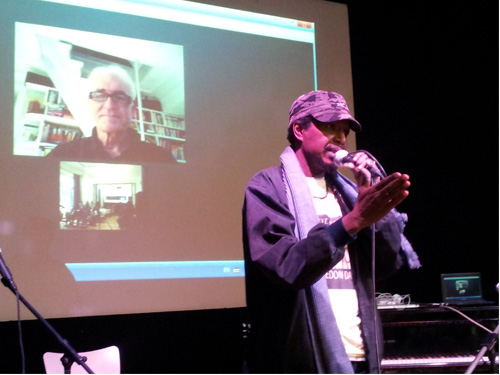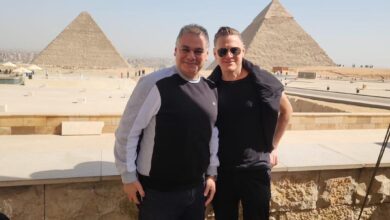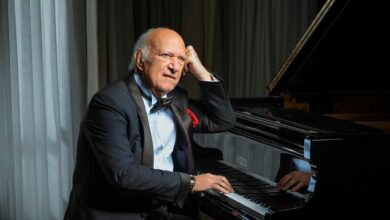
Since the 25 January revolution broke out last year, many musicians have been looking to Egypt for inspiration and at times visiting the country to experience the supposed newfound freedom of expression that the revolution brought about. However, one year into the revolution, some argue that little has changed.
“The earnings of the 18 days started to decrease right after we left the square,” explained Egyptian singer Ramy Essam at the celebration of Music Freedom Day on Saturday at the Goethe Institute in Cairo. Essam added that he felt he could no longer sing freely at Tahrir Square like he did during the sit-in.
Egypt first joined the Music Freedom Day celebrations in 2011. This year, it is among 22 countries that took part in commemorating the day. While there were few participants in Cairo, the discussions and concerts were highly rewarding for the attendees.
Essam, along with Sudanese singer Abazar Hamid and Ole Reitov, program director for Freemuse, an organization devoted to protecting freedom of expression in music, highlighted issues related to freedom of expression as part of the Music Freedom Day celebration.
Skyping in from Copenhagen, Reitov highlighted the importance of creating an international network among musicians. Local discussions are very important, he said, but cultural policy takes a long time to change. Thus it is important to foster the international network of musicians as a tool to press for change, which Music Freedom Day does.
Essam confirmed that it is very important now to defend the freedom of expression of artists, and that the unions of plastic artists, musicians and dramatic professions should play an integral role in this. “Who gave anyone the right to punish an artist for his work?” he asked.
When Hamid, who is forbidden from singing in Sudan because his songs poignantly criticize the ruling regime, was given the floor to speak, he reminded the audience that the International Criminal Court issued a warrant against Sudanese President Omar al-Bashir for crimes against humanity in the war-torn Darfur region on Music Freedom Day in 2009.
Hamid dedicated a song to Juba, the capital of South Sudan, and called upon the Sudanese people to revolt. Encouraging a practical protest for freedom of expression, Hamid also performed Sudanese folk music, encouraging everyone to dance.
Hamid’s performance was followed by two Egyptian singers who sang solo. The first was Mariam Saleh, who sang an experimental song “Ya Baladi, Tool il Tareeq” (Oh My Country, Along the Way) and played guitar. The second was Youssra al-Hawary, who sang and played accordion. Hawary’s songs stood out for their youthful and joyful style that was also sarcastic and menacing. Before beginning to perform, she apologized to the audience for using “vulgar lyrics that might bother some,” adding, “Well, it’s Music Freedom Day.”
She sang: “Oh bus, which drives in front of me / Emitting black [exhaust] / That smells like shit / Isn't it enough, what my life’s been like this year/ Moving backward / And it’s shit, all shit.”
Finally the Like Jelly Band played their conversation-like songs, mocking political events and their impact on creative expression.
Although the audience for the celebration was small, the artists played several experimental tracks and challenged political and social taboos with a great sense of humor.




